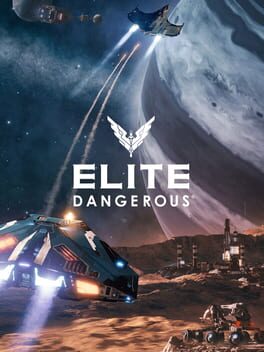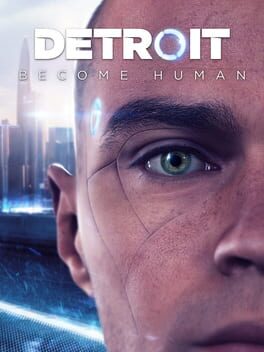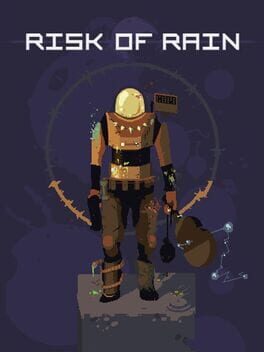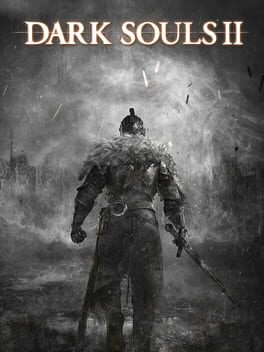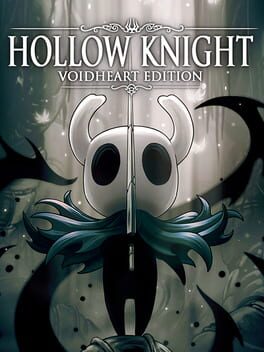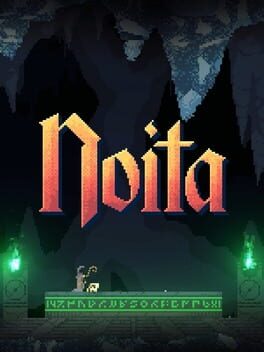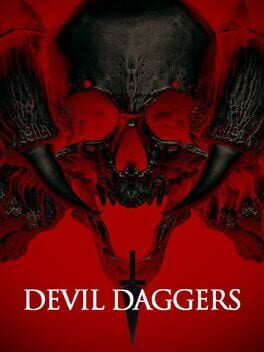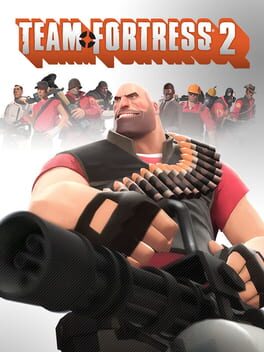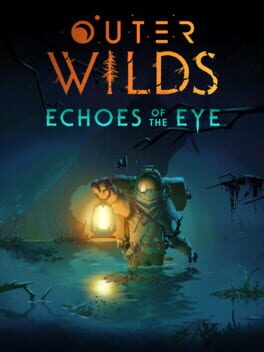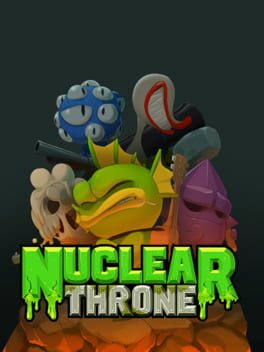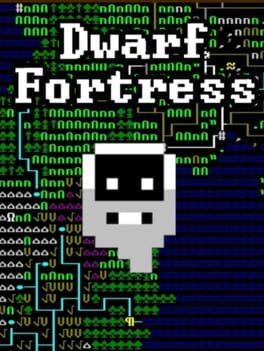iznaroth
2014
A mystifying product that is firmly niche, but space is so generally appealing that it manages to pull people in from well outside its strike-zone. The process of mastering flight in this game is uniquely satisfying, but the level of engagement with the world around you is shallow, and the developers are far too strict with the game's economy. It does not impact the game whether it takes 50 or 500 hours to max out the best ship, so why make it unnecessarily difficult? There's a point where even the most committed players won't find the ends justify the means.
David Cage is so miraculously stupid, out of touch, uninspired and insultingly self-righteous that I physically cannot rate anything he produces higher than the lowest possible. This game terrifically continues his trend of cramming a bunch of B-movie quotes and meatless setups into a shell of a premise - only this time its a hilariously transparent civil rights allegory (that he tries to deny for some reason?) that treats both its sci-fi inspirations and real-world counterparts with the sort of hamfisted tactlessness only a toddler could reproduce. Quantic Dream has dealt irreversible damage to the progression of games as a medium and probably slowed its maturity by more than a decade. The industrys worst name.
2013
2014
Bashed for being sandwiched between some of the industry's most influential releases. It is very hard to rate this game fairly against all games as a whole when it tries to replicate a formula that has only been succeeded in the some of the best games of all time. I think it doesn't deserve the hate. It's huge, pretty fun despite many more moments of frustration, and has a couple cool moments. The DLC are stronger.
2016
Rating for the free "dlc" that was slowly added to the game in the years following its release. Though the map was never expanded significantly (which is usually the most exciting premise for a metroidvania), the free updates were very substantial. The Grimm Troupe was a satisfying motive to retread through the map that culminated in a comparably difficult superboss a.la Radiance, and Godmaster gave the game its most enduring challenge modes and a feature 99% of games ought to include - the ability to freely challenge any boss. Godmaster is particularly brilliant with the addition of Godhome, showing again how much of HK is carried by the strong art direction and use of semi-3D scenes to conjure a sense of scale and place.
2020
The deranged mechanical apex of the roguelite. The wham-line of "every pixel is simulated" kind of implies a gimmick game, but Noita's fusion of spellcraft and chemistry makes for a very compelling experience. The "spell programming" system is insanely opaque, but also incredibly powerful. The interactions between materials, attacks, and enemies are unpredictable and have to be carefully observed to be understood. The map is absolutely gargantuan and the game adamantly refuses to explain anything, relying 100% on the intuition of the player.
It's probably the most willfully obtuse game I've ever played. It has the highest "entry cost" for learning that I've seen in any roguelite. This is a tricky design space and many will hate it, but the reward for careful observation and reckless experimentation is one of the deepest, most surprising and just pure fun roguelites of all time.
It's probably the most willfully obtuse game I've ever played. It has the highest "entry cost" for learning that I've seen in any roguelite. This is a tricky design space and many will hate it, but the reward for careful observation and reckless experimentation is one of the deepest, most surprising and just pure fun roguelites of all time.
2016
If the two things I like the most in shooters are "trying to ride a wave of intensifying chaos before it drowns me" and "straightforward and predictable systems that easily indicate what I can improve", this is logically the perfect shooter. The presentation is also badass and genuinely horrifying. The last moments of a new high-score when it feels like the world is tearing itself apart around you are pretty magical.
I pick it up once every few months and creep a bit closer to the elusive Devil Dagger. 450 now? Only a few more sprints and surely I'll get it...
I pick it up once every few months and creep a bit closer to the elusive Devil Dagger. 450 now? Only a few more sprints and surely I'll get it...
2011
Here's why it's important to consider a unified world rather than separate levels! DaS is very flawed, but it has yet to be conquered when it comes to the sensation of navigating an actual world. It is intensely silly and ridiculous from a "realistic" perspective, but the way Lordran fits together is so natural and intuitive in its dreamlike fantasy-delusions that there's no need to affect any sense of reality at all. It's just hard to describe the feeling of finding a new route to a familiar place, or reflecting on the ridiculous distances you've travelled uninterrupted.
In the same rather manipulative sense that it's easier to convince someone of something by making them think they came up with the idea, games are far more fun when you're tricked into thinking you navigated your way from point A to point B instead of being told to. Dark Souls remains the primary embodiment of that philosophy, using careful and subtle level design to encourage the player towards destinations without ever actually forcing them anywhere. It makes the game, the journey feel more personal. Pair that with combat systems that follow roughly the same philosophy and the game was inevitably going to be good.
In the same rather manipulative sense that it's easier to convince someone of something by making them think they came up with the idea, games are far more fun when you're tricked into thinking you navigated your way from point A to point B instead of being told to. Dark Souls remains the primary embodiment of that philosophy, using careful and subtle level design to encourage the player towards destinations without ever actually forcing them anywhere. It makes the game, the journey feel more personal. Pair that with combat systems that follow roughly the same philosophy and the game was inevitably going to be good.
2007
Witty, inventive, weird, configurable and very deep. The desolate state it's been in for a while now is a damn shame. Like most Source games, the community servers are (or were, now) an infinite abyss of weird subcommunities and incoherent map architecture. Virtually impossible to encapsulate the full extent of my experience with it in any amount of words - it's just too broad. The core of it is, was and always will be the best balance between tight competitive shooting and ludicrous wacky mayhem.
2019
An actual landmark game. Virtually perfect thematic/aesthetic cohesion across the board AND actually using the medium of interactivity to create something otherwise impossible? That's big.
This is a rare game that I think has both very general appeal and the power and presence to be called a masterpiece. It'll screw a few people over by virtue of being a semi-obtuse puzzler with a ton of trust in the player's intuition (meaning rough onboarding especially for people unfamiliar with spaceflight, or just games in general) but you've gotta lose some people along the way, so it's a worthy if unfortunate sacrifice.
Spoilers obviously murder this game, and I'm not planning on a fifty-mile-long analysis so it isn't worth getting into. You kinda just gotta trust that there's a reason so many people rave about it. Fly a spaceship and solve some weird mysteries in a solar system where nothing is as it seems - who isn't down for that?
This is a rare game that I think has both very general appeal and the power and presence to be called a masterpiece. It'll screw a few people over by virtue of being a semi-obtuse puzzler with a ton of trust in the player's intuition (meaning rough onboarding especially for people unfamiliar with spaceflight, or just games in general) but you've gotta lose some people along the way, so it's a worthy if unfortunate sacrifice.
Spoilers obviously murder this game, and I'm not planning on a fifty-mile-long analysis so it isn't worth getting into. You kinda just gotta trust that there's a reason so many people rave about it. Fly a spaceship and solve some weird mysteries in a solar system where nothing is as it seems - who isn't down for that?
My God, they did it again!
This content justifies itself just by how cleanly it fits in with a game so tightly-composed that it seemed impossible to modify. The process of accessing it alone is probably worth the price of admission, but it's a good thing the rest of the DLC is so damn good, too.
Once again, there are aspects of EotE that may alienate some people in order to appeal to others. In this case, the horror aspects of the base game (which were mostly confined to one area and a lingering sense of cosmic dread) have been exaggerated and focused on. The new mechanics are a bit awkward but they work in a way that feels natural to the Outer Wilds ethos, so I think they're a good addition.
The greatest achievement that EotE pulled, for me at least, was how much it expanded on the story of the base game. It both satisfies perhaps the only significant "plothole" of the base game and greatly reinforces the impact and meaning of the game's ending. Very strongly recommended.
This content justifies itself just by how cleanly it fits in with a game so tightly-composed that it seemed impossible to modify. The process of accessing it alone is probably worth the price of admission, but it's a good thing the rest of the DLC is so damn good, too.
Once again, there are aspects of EotE that may alienate some people in order to appeal to others. In this case, the horror aspects of the base game (which were mostly confined to one area and a lingering sense of cosmic dread) have been exaggerated and focused on. The new mechanics are a bit awkward but they work in a way that feels natural to the Outer Wilds ethos, so I think they're a good addition.
The greatest achievement that EotE pulled, for me at least, was how much it expanded on the story of the base game. It both satisfies perhaps the only significant "plothole" of the base game and greatly reinforces the impact and meaning of the game's ending. Very strongly recommended.
2015
2006
DF is one of tremendously few games that can consistently invent novel situations. One can see the threading if they squint, but when the game is explaining that your recently-vampirized dwarf has been executed because he was too excited about it to keep the secret to himself, or that your poor woodcutter was crushed by a tree because he was spooked by something nearby and ran under it as it fell, the limitations stop mattering so much.
2018
I'd say this is the best 2D platformer I've ever played. The cohesive, charming storytelling with great pixel art is the cherry on top, but Celeste's brilliance is really in the mechanics and design. Madeline's moveset is involvingly technical and very deep, but it does not demand performance so much as it invites the player to master exactly as much as they need to in order to find a sense of accomplishment and reward from it.
Nearly every screen is well-considered and encourages the player to find their own version of the desired solution, incorporating whatever techniques they see fit to navigate obstacles. As the game progresses these challenges become a bit less flexible and more demanding, but Celeste never feels like it veers into overtly cruel design. The tone of the game and the speed at which it resets always gives off a feeling of friendly determination - "It's OK, you've got this," even if you have to fail a thousand times to get there. This lets the bonus content approach near-Kaizo segments of length and requirement without ever feeling mean-spirited like those games often do.
The creativity with which Celeste explores every possible facet of its control scheme, the constant novelty of new mechanics and the wonderfully satisfying audio-visual-narrative packaging that surrounds it makes for an obvious winner. What's a better analogue of the platformer genre than the process of climbing a mountain? Slow, methodical persistence and a good bit of self-trust leads to mastery. One of the greats.
Nearly every screen is well-considered and encourages the player to find their own version of the desired solution, incorporating whatever techniques they see fit to navigate obstacles. As the game progresses these challenges become a bit less flexible and more demanding, but Celeste never feels like it veers into overtly cruel design. The tone of the game and the speed at which it resets always gives off a feeling of friendly determination - "It's OK, you've got this," even if you have to fail a thousand times to get there. This lets the bonus content approach near-Kaizo segments of length and requirement without ever feeling mean-spirited like those games often do.
The creativity with which Celeste explores every possible facet of its control scheme, the constant novelty of new mechanics and the wonderfully satisfying audio-visual-narrative packaging that surrounds it makes for an obvious winner. What's a better analogue of the platformer genre than the process of climbing a mountain? Slow, methodical persistence and a good bit of self-trust leads to mastery. One of the greats.
